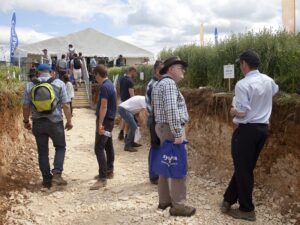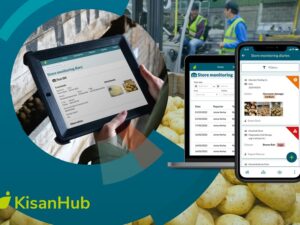As farmers strive to become more efficient and sustainable, getting the most from natural resources, crop varieties and inputs is gaining traction, something Cereals LIVE will explore in depth.
Agriculture must continually adapt as it faces new and evolving challenges, whether that’s reduced access to effective chemistry, changing public pressures or new government policy, says Alli McEntyre, event director at Cereals LIVE. “However, these challenges all pose opportunities for farmers to embrace new ways of thinking about what they do and how they operate. The AHDB Theatre at Cereals LIVE aims to present growers with fresh ideas and innovative ways to tackle obstacles head on.”
Getting more from less
With resistance to pesticides increasingly compromising control, this session explores new strategies to get ‘more from less’ in managing weeds, pests and disease.
Bill Clark at NIAB will present a new way to assess fungicide input requirements using its risk-based decision tool. “Traditionally growers look at the Recommended List varieties and try to match their fungicide according to the risk of that variety to individual diseases,” he explains. “But this doesn’t actually fit very well and isn’t a good indication of fungicide requirements.”
Instead NIAB has looked at how varieties respond to inputs, with some varieties with similar treated yields demonstrating a difference in untreated yield of anywhere from 6t/ha to 0.5t/ha. “We now have high yielding varieties that are quite resistant to disease and have a much lower fungicide requirement,” says Mr Clark. “So when choosing a variety, you should be able to assess the risk of losing yield from disease and then matching the required inputs to that variety.”
Attendees can also hear from AHDB’s Paul Neve on smarter solutions for next generation crop protection and Dorset farmer John Hawkins on how he adapted for low input regenerative farming.
Non-chemical solutions
With the pesticide armoury available to UK arable growers shrinking fast due to regulation or resistance, this session explores other cost-effective solutions to tackle weeds, pests and disease.
A key break crop for many farmers, growing oilseed rape has been a challenging venture in recent years, but studies by Rothamsted Research are offering some promising solutions. “Habitat management on farm can manipulate the behaviour of pests and/or their natural enemies to improve crop protection,” explains Dr Sam Cook.
“Sowing a trap crop around a field – such as turnip rape – can encourage the pest to the trap crop rather than the oilseed rape – as it is similar but highly preferred by pollen and cabbage stem flea beetles.” This reduces insecticide usage as only the trap crop needs spraying.
Trap crops can also encourage natural enemies such as parasitic wasps that attack both types of beetles at the larval stage, effectively keeping a handle on the pest population. “We have also discovered another parasitic wasp that attacks the adult cabbage stem flea beetle – which is exactly what we need,” adds Dr Cook.
This session will also include talks from John Cussans at NIAB, who will take growers through blackgrass control using rotations, cultivation and herbicide timings and Dr Rachel Wells at the John Innes Centre, who will provide an insight into breeding for genetic resistance to pests.
Natural Capital
A vital resource for farmers, natural capital can play a key role in managing ecosystem services for society, from carbon sequestration to flood risk management, air and water quality. With the emerging market for natural capital, this session explores how farmers can tap into the opportunities available to them.
Attendees can hear talks on habitat banking from Prof David Hill at the Environment Bank, and the opportunities of water, nitrate and carbon trading and sequestration from Guy Thompson at Entrade, as well as Emily Norton at Savills on understanding natural capital.
Other sessions
Further sessions will look at how farmers can adjust to the new opportunities presented by the Government’s Agriculture Bill and ELMs, and what impact coronavirus will have now and in the future for UK farmers, food security and global trade.
Box
For the first time ever, the Cereals Event is going online to support the industry amid the Covid-19 pandemic, with existing exhibitors and sponsors involved for free as their fees roll over to 2021. Cereals LIVE 2020 will be held online on 10-11 June 2020. For more information and to register visit www.cerealsevent.co.uk.






